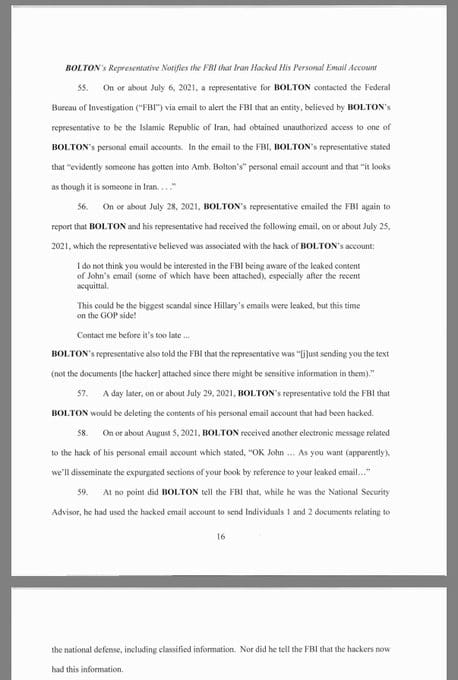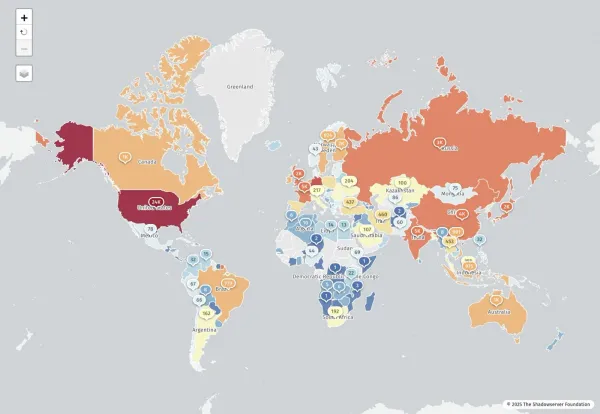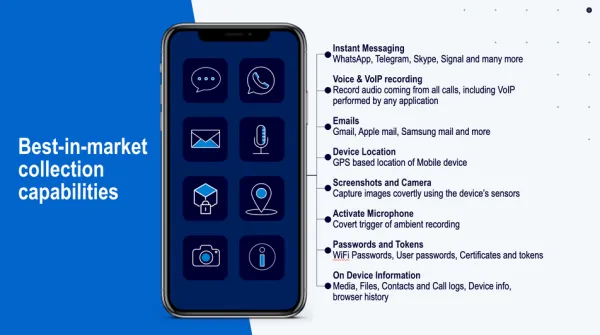Former Trump National Security Adviser John Bolton Indicted: Iran Hacked Email Account Containing Top Secret Information

Federal grand jury charges Bolton with 18 counts of mishandling classified documents as Iranian cyber actors accessed his personal email—part of Tehran's expanding cyber warfare campaign

Former National Security Adviser John Bolton was indicted Thursday by a federal grand jury in Maryland on 18 criminal counts related to the mishandling of classified information, marking the latest high-profile Trump critic to face federal charges. The charges reveal a stunning national security breach: Iranian hackers gained access to Bolton's personal email account that contained top secret classified information he had shared with family members.
Understanding Iran's Cyber Warfare Apparatus
The hack of Bolton's email account represents just one operation in Iran's sophisticated and expanding cyber warfare arsenal. Iranian state-sponsored groups, particularly APT42 affiliated with the Islamic Revolutionary Guard Corps (IRGC), have conducted numerous high-profile operations against U.S. government officials, political campaigns, and critical infrastructure. The Bolton hack occurred during the same period when Iranian hackers were systematically targeting the 2024 Trump campaign and attempting to influence the U.S. presidential election.
The Charges: Diary Entries Turned Security Breach
Bolton faces eight counts of unlawful transmission of national defense information and ten counts of unlawful retention of such information, with each count carrying a maximum sentence of 10 years in prison. The indictment alleges that Bolton shared more than a thousand pages of diary-like entries about his day-to-day activities as National Security Adviser with two unauthorized relatives via his personal AOL and Google email accounts.
According to prosecutors, both recipients were related to Bolton and lacked security clearances to access classified information. Multiple sources indicate these relatives were Bolton's wife and daughter.
The classified material Bolton allegedly shared included some of the nation's most sensitive secrets:
- Intelligence about future attacks by adversarial groups in other countries
- Information about foreign partners sharing sensitive intelligence with the U.S.
- Details on a foreign adversary's missile launch plans
- Intelligence on leaders of U.S. adversaries
- Plans for covert U.S. government actions
- Documents revealing sensitive sourcing methods, including human intelligence sources
The Iranian Hack: A Critical Security Failure
The indictment reveals that between September 2019 and July 2021, a cyber actor believed to be associated with the Islamic Republic of Iran hacked Bolton's personal email account and gained unauthorized access to the classified information he had previously emailed to his relatives.
This breach fits a disturbing pattern. Iranian cyber actors have demonstrated sophisticated capabilities in targeting U.S. critical infrastructure networks, employing brute force techniques and exploiting weaknesses in multi-factor authentication systems across healthcare, energy, and government sectors. The Lemon Sandstorm group, another Iranian state-sponsored operation, has conducted prolonged campaigns against Middle East critical infrastructure, demonstrating Iran's persistent and sophisticated cyber espionage capabilities.
When Bolton's representative notified the U.S. government of the hack in July 2021, they did not inform authorities that the account contained national defense information, including classified materials from Bolton's time as National Security Advisor.
According to the indictment, Bolton received an ominous email about the breach in 2021 that warned: "I do not think you would be interested in the FBI being aware of the leaked content of John's email," comparing it to "the biggest scandal since Hillary's emails were leaked".
U.S. intelligence had determined years ago that Bolton's emails showed hallmarks of being intercepted by China, Russia, or Iran, with Iran considered the top suspect. The hack investigation, which existed separately from any book-related inquiry, eventually evolved from Bolton being viewed as a victim to a potential violator of classification laws.
Iran's Broader Cyber Strategy: From Political Interference to Maritime Warfare
The Bolton email compromise occurred as part of Iran's broader asymmetric warfare strategy. Tehran has leveraged cyber operations not just for espionage but also for disrupting critical maritime infrastructure, where Iranian-backed groups have conducted sophisticated attacks on shipping networks and satellite communications systems. Additionally, Iran has engaged in extensive cyber proxy warfare, mobilizing over 60 hacktivist groups to conduct operations against Israeli and U.S. interests, demonstrating Tehran's ability to orchestrate distributed cyber campaigns.
Iran's cyber operations exist within a complex global cybercrime ecosystem where nation-states like Russia, China, Iran, and North Korea control 77% of all state-sponsored cyber operations, often blurring the lines between state intelligence operations and criminal enterprises.
The AOL Account at the Center of Investigation
The backbone of the Justice Department's investigation centers on diary-like notes Bolton was making to himself in an AOL email account while serving as President Trump's national security adviser. During an FBI search of Bolton's Bethesda, Maryland home, investigators found printed summaries Bolton had written for his own keeping.
Bolton had previously maintained a Sensitive Compartmented Information Facility (SCIF) in his home while working in the Trump White House from September 2018 through fall 2019. When the SCIF was decommissioned in September 2019, federal authorities removed all classified equipment and marked classified documents, and Bolton was explicitly told he could no longer keep classified information at home.
However, prosecutors emphasize that Bolton was never authorized to have classified information in his AOL, Google, or other commercial messaging systems, even when the SCIF existed.
The August FBI Raids and Evidence Seized
FBI agents conducted searches of Bolton's Maryland home and Washington, D.C. office on August 22, 2025, as part of the criminal investigation. The raids yielded significant evidence:
From Bolton's Maryland residence:
- Two cellphones, documents in folders labeled "Trump I-IV," and a binder labeled "statements and reflections to Allied Strikes"
From Bolton's Washington office:
- Records labeled "confidential," including documents referencing weapons of mass destruction, the U.S. mission to the United Nations, and materials related to government strategic communications
Between October 2020 and June 2025, FBI agents interviewed Bolton eight times at his office.
Bolton's Defense: "Personal Diaries" Not Classified
Bolton's attorney, Abbe Lowell, mounted a vigorous defense. "The underlying facts in this case were investigated and resolved years ago," Lowell stated, adding that the charges stem from "portions of Amb. Bolton's personal diaries over his 45-year career – records that are unclassified, shared only with his immediate family, and known to the FBI as far back as 2021".
"Like many public officials throughout history, Amb. Bolton kept diaries – that is not a crime," Lowell emphasized, vowing to prove "once again that Amb. Bolton did not unlawfully share or store any information".
Bolton himself issued a statement accusing Trump of weaponizing the Justice Department, claiming he has "become the latest target" and invoking Stalin's secret police chief: "You show me the man, and I'll show you the crime".
Trump's Response and the Broader Pattern
When asked about the Bolton indictment at the White House, Trump claimed he didn't know about it but said, "I think he's a bad person... He's a bad guy. Too bad, but that's the way it goes".
Bolton becomes the third prominent Trump critic indicted in recent weeks, following former FBI Director James Comey on charges of lying to Congress, and New York Attorney General Letitia James on allegations of bank fraud. All three have denied wrongdoing.
Attorney General Pam Bondi declared: "There is one tier of justice for all Americans. Anyone who abuses a position of power and jeopardizes our national security will be held accountable. No one is above the law".
The Turbulent History: From Ally to Adversary
Bolton served as national security adviser during Trump's first term from April 2018 to September 2019, clashing with the president over Iran, Afghanistan, and North Korea before being fired.
Bolton subsequently published "The Room Where It Happened" in 2020, a memoir that portrayed Trump as ill-informed on foreign policy and primarily concerned with reelection. The Trump administration attempted to block the book's publication, alleging Bolton hadn't completed proper clearance procedures and that the manuscript contained classified information.
A National Security Council official who reviewed the book manuscript in 2020 told Bolton it appeared to contain "significant amounts" of classified information, some at a top-secret level. However, the indictment notes that none of the classified information leading to Thursday's charges was published in the book.
Within 24 hours of Trump's second inauguration, his administration removed Bolton's Secret Service protection. Bolton had been granted this protection by the Biden administration in December 2021 after threats from Iran linked to retaliation for a drone strike Bolton supported that killed Iranian General Qasem Soleimani.
Bolton's Own Words on Classification Laws
Ironically, the indictment cites Bolton's own public commentary to demonstrate his understanding of classification rules. In 2017, before joining the Trump administration, Bolton said about Hillary Clinton's private email server: "if I had done at the State Department what [senior U.S. Government official] did, I'd be [imprisoned] right now".
The indictment also references Bolton's criticism of government officials who used an encrypted chat group to discuss Middle East attack plans and accidentally added a magazine editor.
Legal Analysis: Why This Case Is Different
Former federal prosecutor Elie Honig told CNN that if prosecutors can prove these charges, "John Bolton's conduct is more serious certainly than we saw in the investigations of Hillary Clinton, of Mike Pence, of Joe Biden and even more serious than the conduct that got Donald Trump indicted".
Honig argued the charges are particularly grave because Bolton allegedly "actively disseminated" classified information "of the highest level" to family members with no security clearance, and when his email was hacked by Iran, he allegedly omitted mentioning he had been using the account to share such information.
Honig noted that Bolton's indictment differs from those of other Trump critics Comey and James, particularly because the investigation predates the current Trump administration.
What Happens Next
Bolton is expected to surrender to authorities as soon as Friday at federal court in Greenbelt, Maryland. His case has been assigned to Judge Theodore D. Chuang, who was appointed to the bench by President Barack Obama in 2014.
FBI Director Kash Patel stated: "The FBI's investigation revealed that John Bolton allegedly transmitted top secret information using personal online accounts and retained said documents in his house in direct violation of federal law. The case was based on meticulous work from dedicated career professionals at the FBI who followed the facts without fear or favor".
Analysis: The Convergence of Personal Misconduct and State-Sponsored Espionage
This indictment represents far more than a simple classified information case—it sits at the dangerous intersection of insider threat and nation-state cyber espionage. The Bolton case reveals how personal security lapses by senior officials can create opportunities for sophisticated adversaries like Iran, which has demonstrated consistent willingness to target U.S. government officials and critical infrastructure as part of its asymmetric warfare strategy.
Iranian hackers accessed information Bolton should never have placed in a personal email account in the first place. This creates genuine national security damage on multiple levels: the unauthorized disclosure to family members, the exposure to Iranian intelligence services, and the potential compromise of sources and methods detailed in those communications.
Whether this prosecution represents legitimate national security enforcement or political weaponization of the Justice Department will likely be debated throughout the legal proceedings ahead. However, the Iranian hack component adds a critical dimension that transcends political considerations—America's adversaries successfully penetrated communications from one of the nation's highest-ranking national security officials, accessing intelligence that could inform Tehran's strategic decision-making for years to come.
The case serves as a stark reminder that in an era of sophisticated state-sponsored cyber operations spanning from Middle East critical infrastructure to maritime networks, even the most experienced national security professionals can become vectors for foreign intelligence exploitation through seemingly routine digital communications.
For more on Iranian cyber operations:
- Iranian Cyber Espionage: Lemon Sandstorm's Attacks on Middle East Critical Infrastructure
- Iran's Cyber Warfare: The Trump Campaign Hack and Blowback
- Iranian Interference in the 2024 U.S. Election
- Digital Siege at Sea: The Escalating Cyber War Against Iran's Maritime Empire
- Iranian Cyber Actors Target Critical Infrastructure Networks
- The Cyber Proxy War: Israel and Iran Fighting Through Hacktivist Coalitions
- The Global Cybercrime Empire: Mapping Underground Economy and Geopolitical Power Structures





